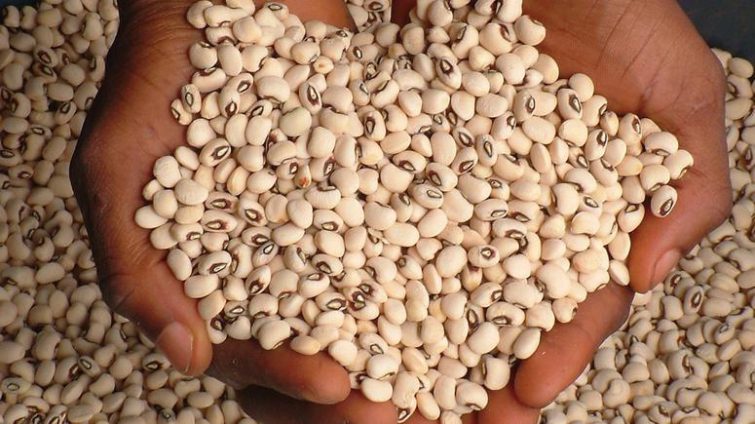Ghana’s food security will receive a good boost if the country’s first genetically modified crop gets environmental release approval from government, the scientist leading the project has said.
The National Biosafety Authority of the Environment, Science, Technology, and Innovation Ministry announced in February that it has received a request from the Savannah Agricultural Research Institute (SARI) of the Council for Scientific and Industrial Research (CSIR) for environmental release approval of a GM cowpea or beans variety.
The gazette notification announcing the process said if approved, the request will allow for the “placing on the market of genetically modified Pod Borer Resistant (PBR) cowpea in Ghana.”
The gazette quotes the application to the Biosafety Authority as saying farmers and consumers will benefit from PBR cowpea as a result of higher yields, lower costs of inputs, and greater on-farm safety because of reduced pesticide usage, and decreased pesticide residue on the beans.
The authority says it is reviewing the application together with relevant regulatory agencies and independent experts. A decision is expected in or around August 2022.
Dr Jerry Nboyine, who is the principal investigator in charge of the GM cowpea project, said the variety will help farmers cut down on the amount of spray they use on cowpea farms every season from more than eight times to about two times.
“Cowpea or beans. Your 'yo ke gari' popularly called red-red or gari and beans are made from it. Most of us are excited to see it in our dishes. But we don’t know farmers' hustle to produce it.
"From planting to harvest, even in storage, even in storage, this particular crop is loved by pests…,” he explained.
“What scientists were able to do with the help of biotechnology tools is to identify a particular gene responsible for resistance and it was introduced into crops.
"Cowpea is one of them… It has helped make the cowpea resistant to the maruca pests,” he added.
The application for environmental release follows almost 10 years of research.
Chief Executive Officer of the National Biosafety Authority Eric Okoree says the authority is well-positioned to be able to appropriately scrutinize the GM cowpea and ensure it benefits Ghanaians.
“The authority was established in 2011 and implemented in 2015. As soon as it was established, the then biosafety committee gave two approvals for GM cowpea and GM rice. And the permits were given to the CSIR. The research has been ongoing, and the authority is monitoring it,” he said.
“Now Ghana has a law in place to regulate GMOs. An authority has been established. And our aim is to ensure the safety of health and the environment. And when that is done, all the benefits of GMOs will be realised,” Mr Okoree added.
Latest Stories
-
I want to focus more on my education – Chidimma Adetshina quits pageantry
2 hours -
Priest replaced after Sabrina Carpenter shoots music video in his church
2 hours -
Duct-taped banana artwork sells for $6.2m in NYC
2 hours -
Arrest warrants issued for Netanyahu, Gallant and Hamas commander over alleged war crimes
2 hours -
Actors Jonathan Majors and Meagan Good are engaged
2 hours -
Expired rice saga: A ‘best before date’ can be extended – Food and Agriculture Engineer
3 hours -
Why I rejected Range Rover gift from a man – Tiwa Savage
3 hours -
KNUST Engineering College honours Telecel Ghana CEO at Alumni Excellence Awards
3 hours -
Postecoglou backs Bentancur appeal after ‘mistake’
3 hours -
#Manifesto debate: NDC to enact and pass National Climate Law – Prof Klutse
3 hours -
‘Everything a manager could wish for’ – Guardiola signs new deal
4 hours -
TEWU suspends strike after NLC directive, urges swift resolution of grievances
4 hours -
Netflix debuts Grain Media’s explosive film
4 hours -
‘Expired’ rice scandal: FDA is complicit; top officials must be fired – Ablakwa
5 hours -
#TheManifestoDebate: We’ll provide potable water, expand water distribution network – NDC
5 hours

